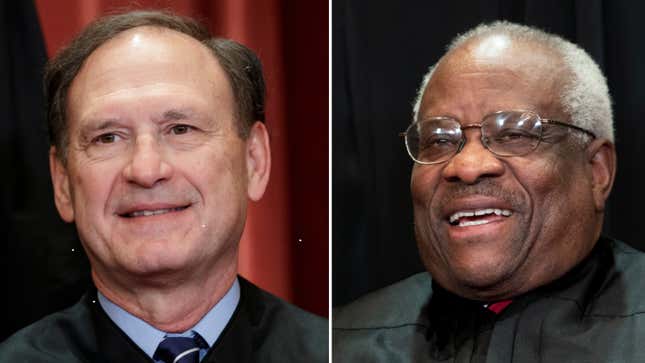Guess Who Wants to Overturn the SCOTUS Decision Legalizing Gay Marriage
Politics

It’s the start of a new Supreme Court term, one that’s already been thrown into no small amount of turmoil by the death of Justice Ruth Bader Ginsburg and the uncertainty surrounding Donald Trump’s nominee Amy Coney Barrett—whose timeline for confirmation has now been disrupted by the unfortunate reality that Republican Senators are getting sick with covid-19, possibly from her Rose Garden party that may have been a covid-19 superspreading cesspool. (God: real???) But on Monday, Justices Clarence Thomas and Samuel Alito signaled where their long-term priorities stand—they think it would be a great idea to overturn Obergefell, the landmark SCOTUS ruling that legalized gay marriage. Amy Coney Barrett is probably salivating right now, just thinking about the prospect of an even more conservative Supreme Court that will entrench minority rule for decades! Is God real or not??? Who’s to say?
-

-

-

-

-

-

-

-

-

-

-

-

-

-

-

-

-

-

-

-

-

-

-

-

-

-

-

-

-

-

-

-

-

-

-

-

-

-

-

-








































